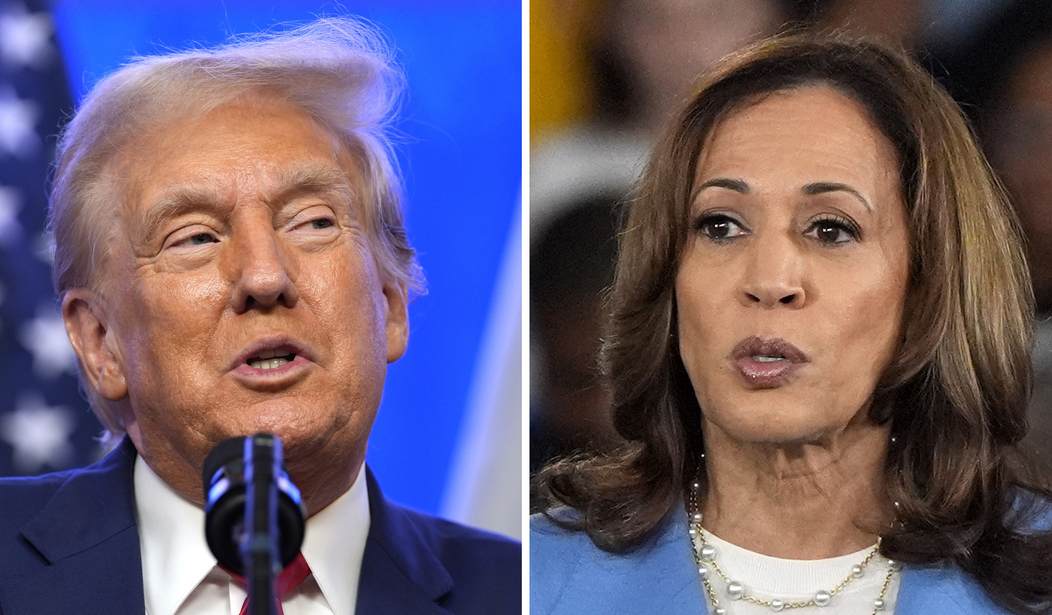The first, and likely only, debate between Donald Trump and Kamala Harris took place last Tuesday, and we are watching the subsequent polling carefully. Harris was widely seen as the winner of that debate, for which Trump seemed under-prepared, but some data has suggested that her debate stage "victory" didn't do much for her position in the race. Trump subsequently announced that he wouldn't participate in another debate (he's done two this cycle, one against each opponent he's faced), claiming that he'd won so handily that he didn't need to debate again. This was a missed opportunity, in my view, as he could have volleyed the ball into Harris' court by expressing an openness to a second debate only if she does a series of serious interviews first. She would almost certainly have rejected this contingency, but then Team Trump could have more convincingly argued that their opponent was ducking both interviews and a second debate – because she's so averse to substance and follow-up questions. Instead, he unilaterally decided he wouldn't be doing another one, likely meaning that the last remaining debate of the cycle will be the October 1 matchup between JD Vance and Tim Walz.
One thing that is becoming clear since last week is that Harris' rehearsed answers are basically all she's got. Her defenders may call this message discipline, of which Trump could use a lot more. A skeptic, by contrast, may see a tentative, underwhelming candidate trying to run out the clock and hope for the best, dodging as much scrutiny as possible for someone running for the highest office in the land. She doesn't have confidence in herself, given how she tends to perform. She is explicitly trying to avoid furnishing voters with real information about what she believes and how she'd govern, if elected. Her approach to very limited media engagement is, "don't make news," which only really works with media complicity. One thing that she really, really doesn't seem to want to answer is whether Americans are better off after four years of her administration than they were when she took office:
Based on the parade of horribles she mentions for ‘context,’ wouldn’t her answer have to be, ‘yes people are better off now than they were in the four-years-ago hellscape I just described’? Seems like a pretty glaring follow up. ‘So is that a yes?’ https://t.co/X5HEWsI9vJ
— Guy Benson (@guypbenson) September 17, 2024
By the way, one of the claims she advances in this practiced non-answer isn't accurate:
Harris repeats this incorrect stat in her interview today with @NABJ
— Alex Thompson (@AlexThomp) September 17, 2024
"Four years ago, when we came in, we came in during the worst unemployment since the Great Depression."
By December 2020, unemployment had fallen back to 6.4%. https://t.co/658pDDoZaS pic.twitter.com/x5wGB97lHn
Harris and Biden inherited jobs bouncing back from the pandemic, a growing economy, and an array of vaccines. Her story doesn't reflect reality, but on its own terms, it seems like she wants to say, "Yes, Americans are better off." But her team realizes that saying this would present a huge vulnerability, because voters are paying 20 percent higher prices than they were when Trump left office (in addition to a border crisis and global instability), and they aren't nearly as enamored with "Bidenomics" as Harris is. She can't say people are worse off, because she's the incumbent, but she can't tell them something they're not feeling. So we get many words that say nothing and don't address the question. Journalists should know that follow-up questions are in fact allowed on this, or any other, subject with Kamala Harris. Her go-to formulation, concocted for the debate, and since repeated multiple times, is now drawing mockery:
"I grew up a middle class kid." pic.twitter.com/1nv9nRCigB
— Trump War Room (@TrumpWarRoom) September 17, 2024
.@JDVance: "You'll say, 'Vice President Harris, what is your plan to lower the inflation caused by your policies?' And she'll say, 'well, I grew up in a middle class family.'" 😂 pic.twitter.com/wbouZIZefv
— Trump War Room (@TrumpWarRoom) September 17, 2024
"Are Americans better off than they were when you took office?"
Recommended
"Well, here's my life story." Vacuous and evasive. I'll leave you a new survey out of Georgia, taken almost entirely after the debate:
📊 GEORGIA poll by AJC/UGA
— InteractivePolls (@IAPolls2022) September 18, 2024
🟥 Donald Trump: 47%
🟦 Kamala Harris: 44%
#68 (2.2/3.0) | 9/9-15 | 1,000 LV | ±3.1%https://t.co/9uGQP1JQJh pic.twitter.com/VbBv4pSi6i
























